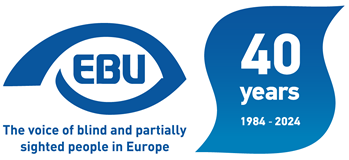In the Nordic countries, meaning Iceland, Norway, Sweden, Denmark and Finland, women with visual impairments have been cooperating for over twenty years. The Nordic Women's Committee (Nordisk kvinnokommitté) of the Nordic vision impairment organizations is a subcommittee of the Nordic Cooperation Committee (Nordisk samarbetskommitté). In their work, the Women's Committee has highlighted visually impaired women's standing in their own organizations and in society. The Women's Committee considers as important aims the promotion of equal distribution of positions in different organizations' decision-making bodies, and activating women in taking part in decision making and participation in organizational work. The foundation of the work is in giving inspiration and support to others in gender equality work.
In the Women's Committee members exchange experiences and learn from the work done in the different countries' women's networks or committees. Women's activities have been organized in varied ways in the different countries and the committee offers an opportunity to get to know what has been done in neighboring countries. The Committee also offers a platform to share current information, study reports and projects concerning women with visual impairments. These days the Women's Committee meets twice a year. Each country delivers a short report on the situation in their country on a jointly decided topic involving women, such as use of personal assistance or recruiting of women for organizational activities.
A central part of the cooperation are the Nordic Women's Conferences, held every two years. These conferences' have had themes such as violence against women and women's employment. The theme in the latest conference, held in Helsinki, Finland on September 23-25, was a modern, visually impaired woman. In their talks, women from all of the Nordic countries described their own experiences and views among other things on participation in working life, women's different roles, and what it means to be an independent visually impaired woman. The themes of gender, disability and minorities were also looked at in the light of research-based information. Young women from all the Nordic countries also participated by sending a video greeting, in which they told of their dreams and plans for the future. The conference workshops focused on how to make good use of what the conference offered in the women's activities in various countries.

